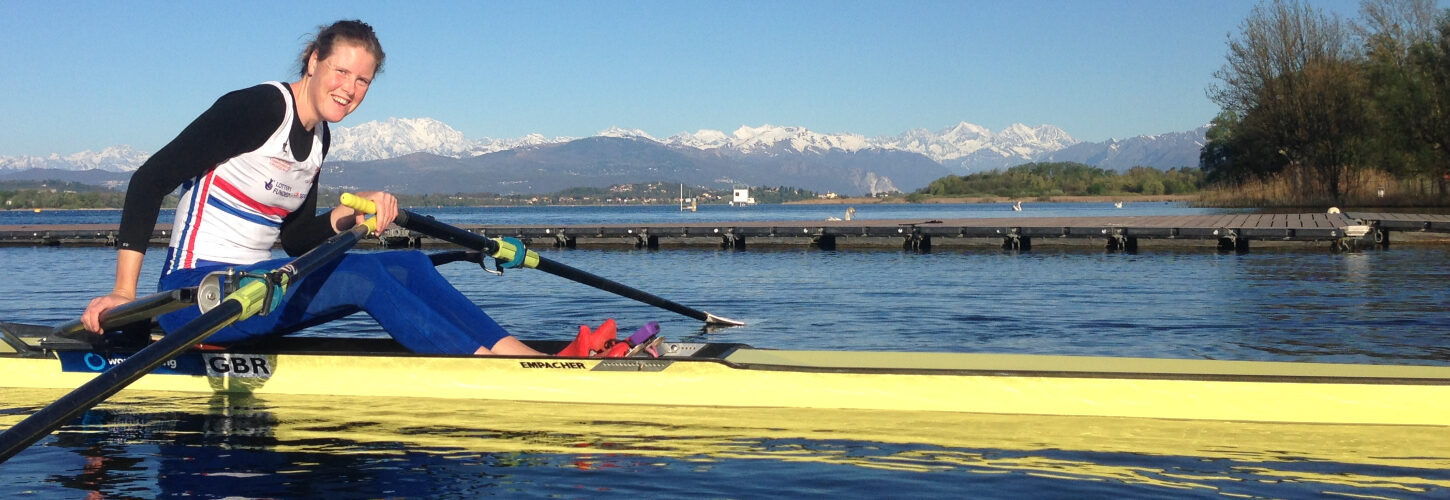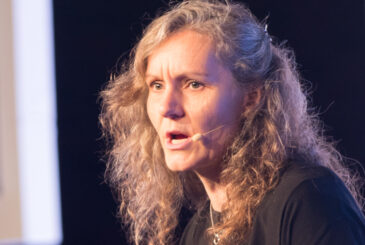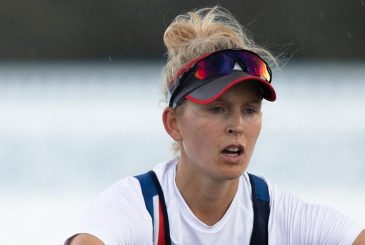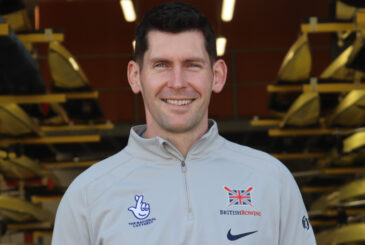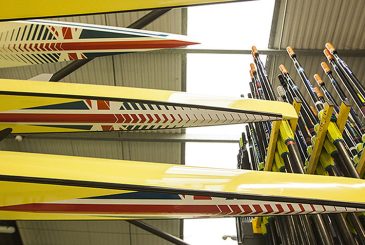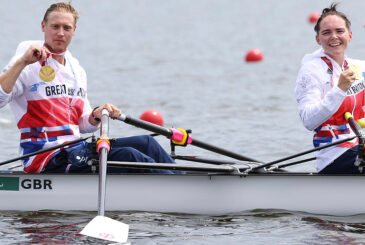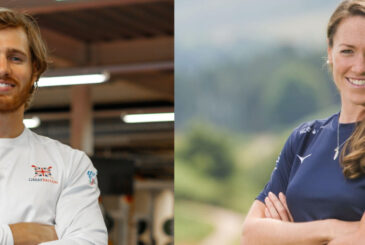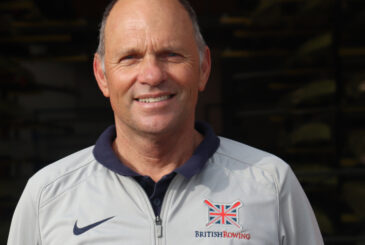If you’re looking for performance insights, then look no further. In her new book, Learnings from Five Olympic Games, Frances Houghton shares her performance journey, which culminated with a third Olympic silver at the 2016 Rio Games in the women’s eight
Former GB rower Frances Houghton originally wrote Learnings from Five Olympic Games (L5OGs) as a thank-you gift for the coaches and support staff who had helped her along the way – for what they helped her learn, and to capture the memories of what they had created together.
She says: “The amazing feedback I got from those first few copies showed me that the book has value to others too, and so I’ve made the book available to anyone.”
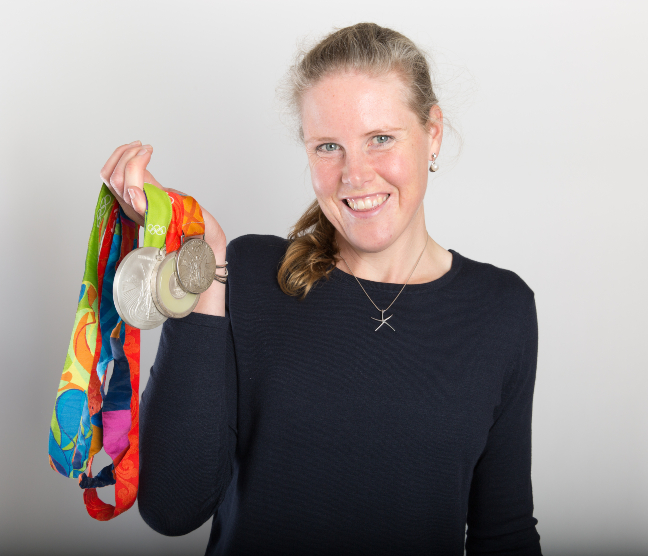
We caught up with Frances to find out more.
1 – The book is very visual making it very easy to pick up and dip into time and time again. Was this your idea?
Frances: “Yes, absolutely. Making the book engaging from the moment the reader picks it up was very important to me. L5OGs is a mix of practical performance learnings and personal stories.
“Clearly divided chapters, using colour and illustrations interwoven throughout the content has allowed the practical and the personal to sit side-by-side and really come to life. I’m very pleased with the result. I wanted it to feel like stumbling across my notebook, and I love that people tell me they find themselves referring back to it again and again.”
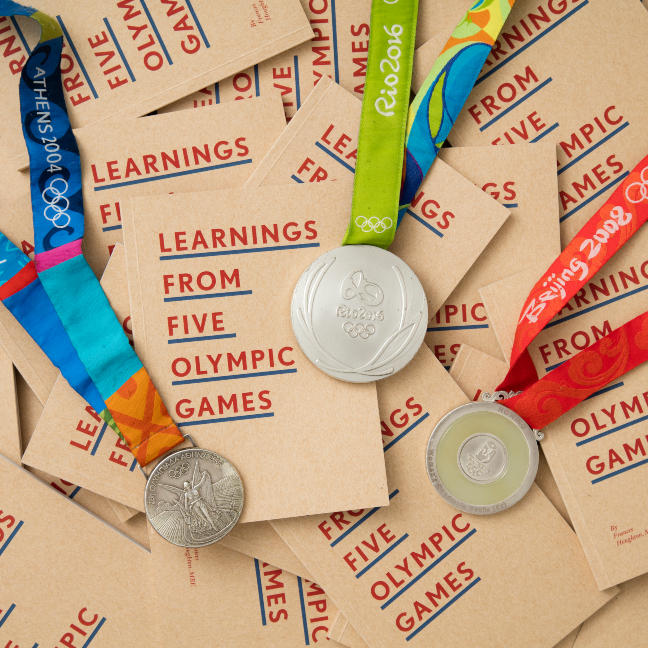
2 – How did you approach such a personal narrative?
“In the boat I always felt it was important to be honest with my teammates – to be as open about my strengths as well as my weaknesses. The more honest we were with each other, the more progress we made, and the stronger we were under pressure. So, there really was only one way to write the book – by being completely honest.”
3 – In the book, you share how you transformed your mindset from focusing on gold medal success to also appreciating the journey and connections. How tough was it to do this?
“In 2014 I lay on my living room floor and thought I would never row on the team again. My ‘no-stone-unturned’, ‘I have to win’ philosophy was making me ill and injured, and the crews I was in were getting slower and slower.
“I realised I had one last chance, but I had to let go of winning. I forced myself to look back over my career and reassess how I had produced my best performances. In that moment I realised that instead of winning, it was about focusing on what we could create together.
“So, I re-defined success in my mind and made a vow to myself. My goal, my dream at that point became ‘to stand on the Olympic podium with my arms around my teammates, sharing what we had created together – and feel joy, not relief that it was over’.
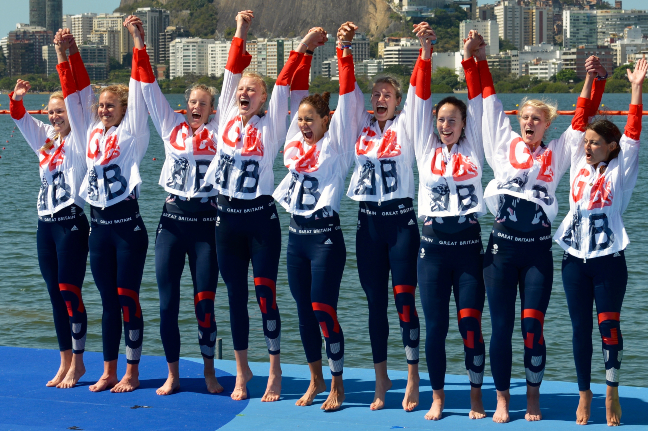
“It was hard to stay true to this within an environment focused on winning, but I knew deep down that this was not only going to be a lot more enjoyable, but would be how I would perform at my best again.”
4 – The 2016 women’s eight went through 21 gruelling seat races – how did you cope with this?
“The night before the first seat racing for the women’s eight in 2016 I knew my career might end the next day. I was terrified, but I knew I could bring calm, length and power to the crews I was in, and I made myself focus on each of those strokes, nothing beyond that.
“I have no doubt those layers of trust were what kept us together when we were lying sixth in the Olympic final”
“I hadn’t raced in a four since 1997; I had no idea what it was going to feel like, or what calls might work. It felt completely chaotic and it all happened so fast…
“So, when Tommo [Paul Thompson] called my name after the first run, it was like he was looking me in the eye and saying: ‘Okay. Now you have to prove yourself. No advantages, no benefit of the doubt for your previous titles. This is a clean slate; you have to prove yourself. Now.’
“It was gut-wrenching to feel so exposed. But it had been six years since winning gold in New Zealand and I knew I had to prove my worth both to myself and to my crew mates.
“Each one of those seat races was a layer of trust, respect and understanding between us. To see teammates have the faith to put themselves in each other’s hands, and lay themselves bare for what they wanted to be a part of, was a privilege and will stick with me forever. I have no doubt those layers of trust were what kept us together when we were lying sixth in the Olympic final.”
5 – The camaraderie of the 2016 women’s eight really comes across in your book. Are you all still in touch, and what did they make of the book?
“We’re in touch almost every day! They have been so supportive of the book. I passed the first copy around each one of them to make sure they were okay with it. Some said it made them cry, others laugh, and for everyone it brought back memories.
“It’s been such a great way to talk about what we did together all over again!”
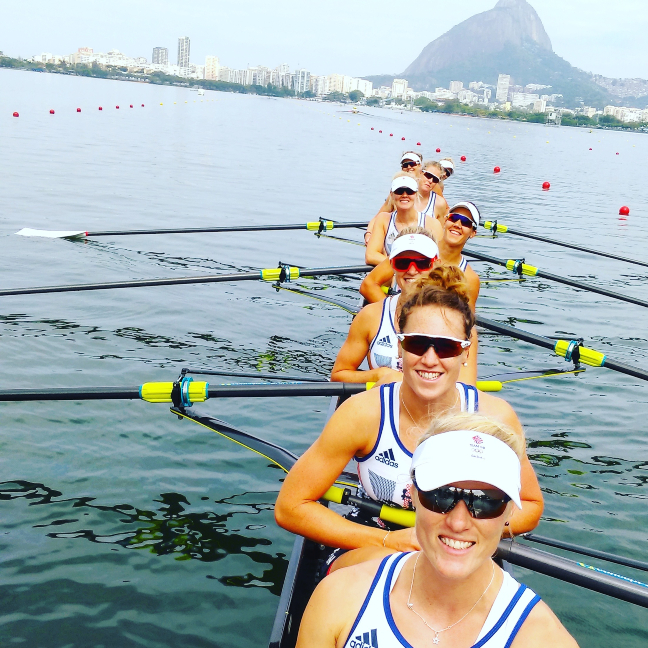
6 – You write that daily training is about piecing together the preparation for the ‘ultimate race’. I wondered what your thoughts are for club rowers – especially when there isn’t any racing at the moment?
“Racing season can be so busy with the rush of race days, and then needing to recover, to have the energy and head space to make improvements.
“I would see this time as a great opportunity to test different things out – different race plans, starts, calls – with full permission to make mistakes and have the time to really learn what works best for your crew.”
“Sydney was such an incredible experience. Even though I came last, it completely blew me away to be a part of the team”
7 – A low point was when you were injured in 2014, but you used the time to do other things, including designing cooking courses. I wondered if you’re still involved in these?
“I now live above a harbour in Cornwall, so I’m making friends with the local fisherman. I don’t recommend carrying fresh crab home in a plastic bag!
“Instead of cooking courses, I’m starting up ‘Walk with an Olympian’. A ‘walk and talk’ to combine my love of walking here and sharing the Olympian mindset and how people can integrate it into their own everyday lives.”
“That time when you mistook the 750m marker at National School’s for 250m… that was the best mistake you made”
8 – After winning four World Championship golds and three Olympic silvers and a European gold, plus many others at World Cup level, which medal means the most, and why?
“My competitor’s medal from Sydney! Did you know that every Olympian gets a medal for competing? Sydney was such an incredible experience. Even though I came last, it completely blew me away to be a part of the team – the most successful team we had had in such a long time, and to be surrounded by the sports-mad Australians.
“I had taken a year out of university, travelled 100 miles a day between London and Longridge, and survived Mike Spracklen’s training regime of sometimes four sessions a day… but it was worth it.
“I remember watching Cathy Freeman run her 400m final. The stadium went completely silent when the gun went off. All we could see were the camera flashbulbs going off like a wave around the stadium. When she crossed the line, it felt like the whole city exploded.
“She then knelt down on one knee, took off the hood of her racing suit and then took a moment to herself, right in front of us.
“It was an incredible moment.”
9 – If you could give your 14-year-old self some advice for life or rowing, what would it be?
“That time when you mistook the 750m marker at National School’s for 250m… that was the best mistake you made – I was never afraid to go early after that!”
10 – From your experiences over the last 21 years, how has being a GB rower changed, and do you have any thoughts on how it can be further improved from an athlete’s point of view?
“When I was first on the team we had to pay £60 for every physio appointment. Now there are three full-time physios and an incredible array of brilliant support staff for every aspect of performance.
“I know it’s different now, but the one area I thought there was room for improvement in during my time was in psychology. Both to ensure good mental wellbeing in such a competitive performance environment, but also to optimise performance.
“Every time I crossed the line of a major race I had learnt so much about myself and how the crew responded to pressure – I would always start our preparations for the next race in the cool down zone, but I was desperate to share those immediate insights with someone who could help me implement the learnings straightaway. There are definitely still margins to be gained in moments like that.”
Photos: Frances Houghton
Buy a copy of Frances’s book
Learnings from Five Olympic Games is entirely self-published and it took Frances four years to write the book, so please do spread the word if you have enjoyed reading it.
“Your book is so beautiful and eloquent I can’t even tell you how good it is. It arrived today and I couldn’t put it down from the front to back cover.”
Kat Copeland, 2012 Olympic champion
“It’s the best book on training for performance that I’ve read in years. Authentic, applicable, concise. 100 pages of gold.”
Dr Tom Evans, Emergency Medicine Consultant and Rowing Coach
Priced at £25, Learnings from five Olympic Games is only available through www.franceshoughton.co.uk


